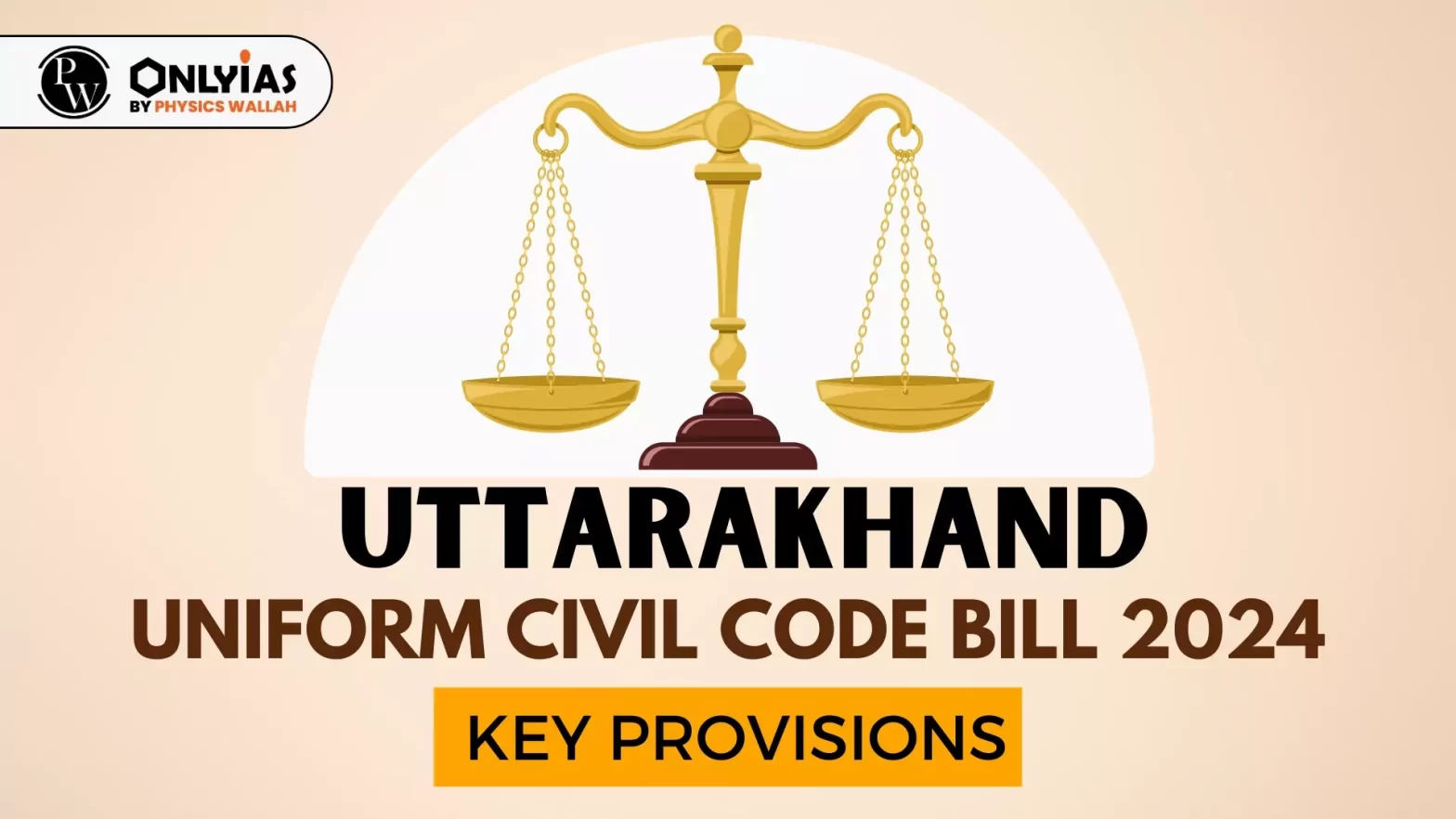![]() 7 Feb 2024
7 Feb 2024

This editorial is based on the news “Uttarakhand Uniform Civil Code: Registration of live-ins, jail term raise questions of privacy & liberty” which was published in the Indian Express. Recently, the Uttarakhand government tabled the Uniform Civil Code (UCC) 2024 Bill in the Assembly which makes important changes in areas such as marriage, divorce, and succession.
| Relevancy for Prelims: Uttarakhand Uniform Civil Code Bill 2024, Uniform Civil Code in India, Triple talaq, and Directive Principles Of State Policy.
Relevancy for Mains: Uttarakhand’s Uniform Civil Code Bill- Features, Significance and Challenges. |
|---|
| Mains Question: Discuss the possible factors that inhibit India from enacting for its citizens a uniform civil code as provided for in the Directive Principles of State Policy. (200 words, 12.5 marks) |
|---|
| Must Read | |
| NCERT Notes For UPSC | UPSC Daily Current Affairs |
| UPSC Blogs | UPSC Daily Editorials |
| Daily Current Affairs Quiz | Daily Main Answer Writing |
| UPSC Mains Previous Year Papers | UPSC Test Series 2024 |

<div class="new-fform">
</div>